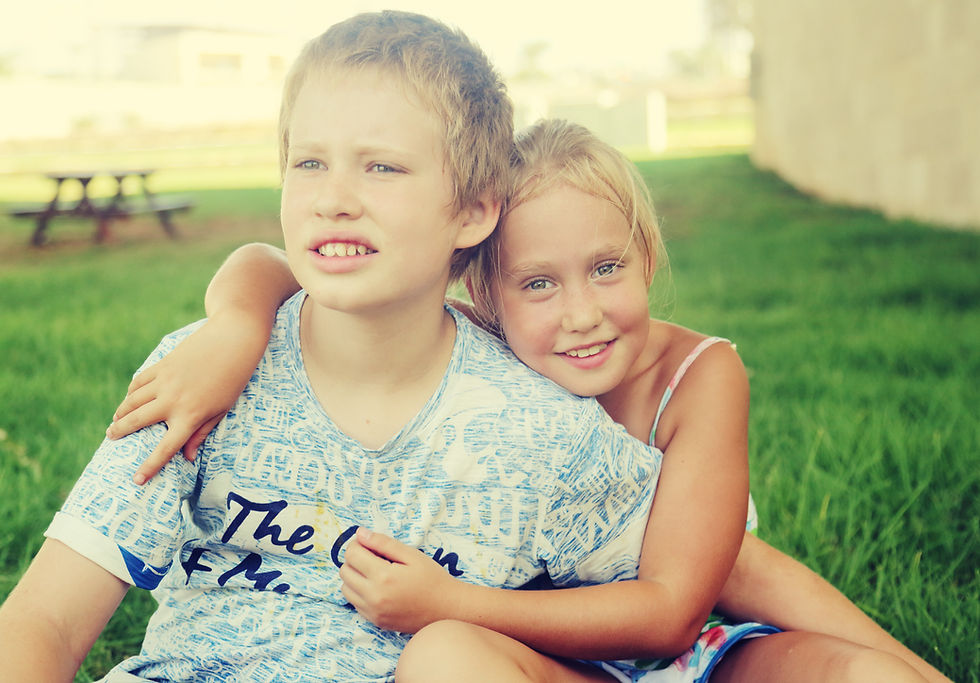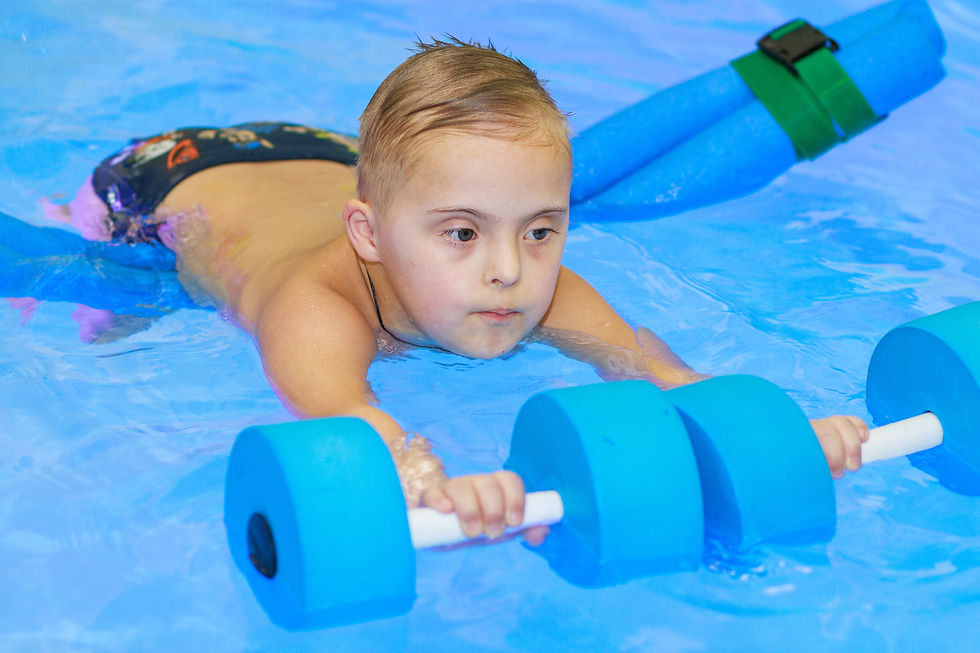Summer safety for children with autism
- Joss Burns

- Aug 1, 2025
- 5 min read

As temperatures soar, we’ll be taking a well-deserved break to enjoy some family time. For many of us, that will mean barbeques, fireworks, and other outside activities like swimming.
But for families with neurodivergent conditions, the planning doesn’t end there. In the United States, around 1 in 5 children are classified as neurodivergent. While the break in the routine might be pleasant for many of us, for the children with more severe neurodiversity – particularly autism – the change in normal life can be upsetting.
Beyond the stress that can come from a change in routine, for children with autism, the common Fourth of July activities can even be life-threatening. For example, the common cause of death among children with autism is suffocation, asphyxiation, or drowning. This means that parents need to be on the lookout for their child’s safety at all times and plan the weekend in advance to protect the child or remove them from potentially stressful situations.
Every child with autism is unique, but here are some tips for preparing and managing your holiday weekend so you can have fun, relax, and also care for your child.
Long term: Year-round planning
As most parents of neurodivergent children will know, building in good habits and safety measures isn’t something that you can effectively do the week before or day of any planned activity. For children with autism or others displaying worrying signs, there are steps that should be built into their normal routines to help with their general development.
Though the dog days are summer are dwindling, here are some year-round actions you can take (if you haven’t already) that can help in the future.

Sign them up for swimming lessons
As we mentioned before, drowning is one of the leading causes of death in children with autism. For parents of these children, any plans involving water – particularly more open spaces like lakes or the sea – can be a source of intense anxiety.
Even a few moments of distraction can be enough for the child to wander off and get themselves into difficulty. While parents will always need to be vigilant no matter what, signing the children up for regular swimming lessons can help reduce the risk.
Build relationships with your neighbors
Across the US, there has been a decline in “neighborly relations” for lack of a better term. According to a recent nationwide survey, only 26% of US adults know “all or most of their neighbors," with 74% saying they only know some or none and, shockingly, only 44% saying they trust all or most of their neighbors.
Children with autism thrive on routine and familiarity, and the more people they know and trust, the easier it is for them to adapt to altered circumstances. This doesn’t mean ever placing your child in a situation that you or they don’t feel comfortable with.
But by building relationships with your neighbors, they will also be better able to relate to the child – understanding better their likes, dislikes, and triggers. During holiday periods, we are more likely to see or spend time with our neighbors, and increased familiarity can make the experience more relaxed and enjoyable for everyone.
Plan your days together
If you don’t already do this regularly, this could be classified as a short-term tip. However, it is a good routine to get into anyway. By sitting down and planning your normal weekends (and the holiday weekend!) you are giving your child a say in what will happen.
A good approach is to give the child two or three choices in how you want to spend the weekend to guide them and give them control while maintaining structure. For example, would you like to have a barbeque in the garden or go to a theme park?
Another good practice is to print out a visual timetable of the day’s plan. Being able to see at what time the activities are planned gives a sense of control that can help them adapt to change.
Short term: Tips for the holiday weekend
There are many steps we can take throughout the year to improve our child’s sociability and resilience to changing circumstances. But when the weekend is right around the corner, what small changes can you make to better prepare your child with autism?
Always be aware of risks
It may go without saying, but any time you go to a new environment, take a moment to assess the risks. This may be bodies of water, the heat of a barbeque, a large crowd, fireworks, or more.
Keep as much of your routine as possible
A break from routine doesn’t mean you can’t keep aspects. Having routine anchors throughout the day can give the child a sense of stability and the familiarity they so crave.
One of the main plans during this holiday season is barbeque. But we know that the food doesn’t always arrive when it should – or you simply plan to eat later than you normally would. Making the child wait for food could lead to feelings of stress. So, make sure you always have food available for the child to maintain meal times.
Identify and plan for quiet spaces
The vast majority of us will be aware just how beneficial noise cancelling headsets are for children or adults with autism. They are fantastic tools to help them feel safe when there are higher levels of noise than normal.
However, it is still a good idea to identify quiet spaces you can go to when necessary. For example, fireworks are also a visual stimulus. Some children with autism may enjoy the bright lights, but it is just as likely that they can be overwhelming.
Depending on how your child reacts, it is a good idea to have a back-up plan in place where they can feel safe.
Quick distractions
Likewise, especially if you are in a wholly unfamiliar environment away from your home, it is a good idea to have a bag of tricks to help distract them. Sensory bags are a must-have travel companion for parents.
Common items in these bags include fidget spinners, snacks, and colouring books. Just bring as many things with you that you know your child responds well to and bring them out when necessary. Having as many items as possible is best as variety and novelty can help with the distraction.
Make memories with your child
The summer holiday period, particularly the Fourth of July, is a special time of the year that can leave lasting positive memories for your children. While it comes with challenges for parents of children with autism, with adequate planning, there’s no reason you and your children can’t enjoy yourselves and relax.
If, however, you do find you are struggling to manage on a year-round basis, remember that there is support available for you. Raising children with autism is not easy and it’s OK to feel overwhelmed at times. Remember, caregiver syndrome is real!
In this case, make sure you have a robust support network of family and friends, or feel free to reach out to us at any time for more help and advice.


This is such a practical and thoughtful guide for navigating holiday weekends. I love the emphasis on building neighborly relationships as a safety net—it’s a simple, human solution that can make a huge difference in an emergency. The tip about maintaining "routine anchors" like meal times, even amidst chaos, is golden advice for keeping regulation in check.
It’s also crucial to remember that these strategies—planning quiet spaces, using sensory bags, maintaining routine—aren't just for children. Many autistic adults use these exact same coping mechanisms to survive holiday gatherings without burning out.
For adults who find themselves needing these "escape hatches" during social events and wondering if it points to a broader sensory profile, finding a way to understand their own…